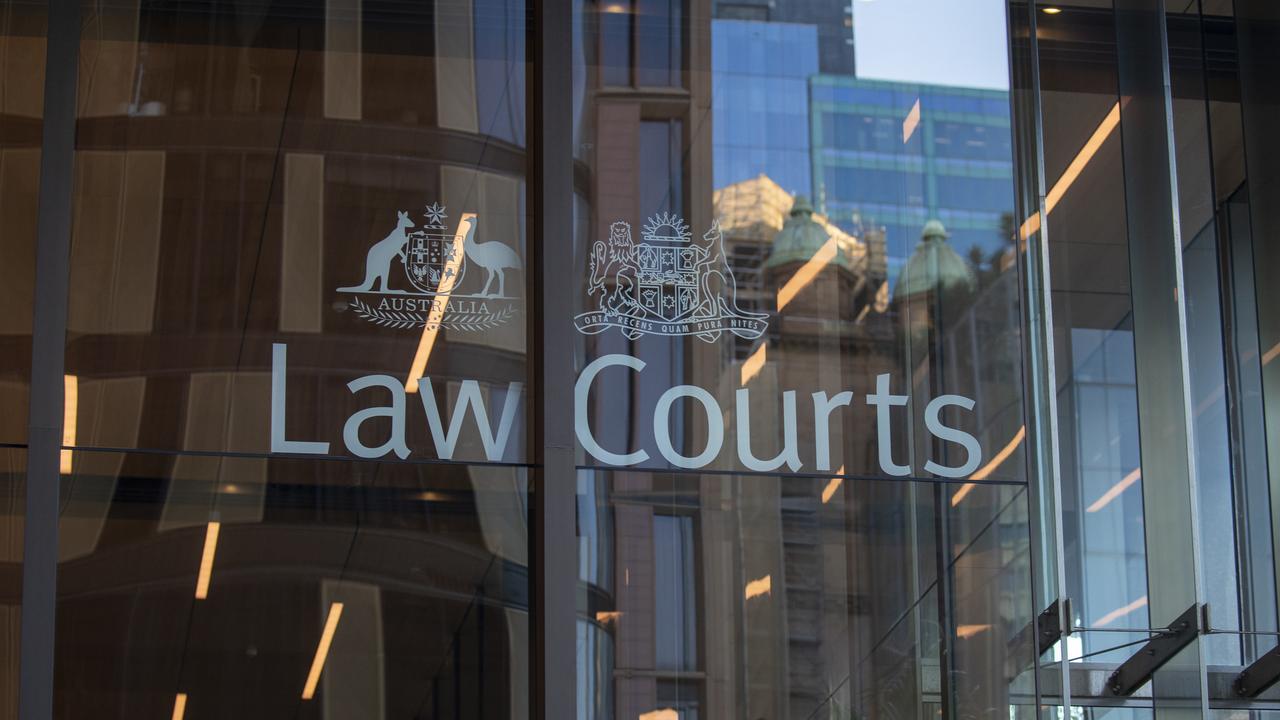ACCC to launch new cartel actions, targets super markets, airlines, warns of dangers of crypto fraud
The Australian Competition and Consumer Commission is concerned about influencers peddling get rich crypto scams in the wake of proposed deregulation of the sector by Trump.

Business
Don't miss out on the headlines from Business. Followed categories will be added to My News.
The Australian Competition and Consumer Commission is concerned about a “horror scenario” which could see influencers peddling scam get rich schemes for investing in cryptocurrencies in the wake of proposed deregulation of the sector by the Trump administration, chair Gina Cass-Gottlieb has warned.
In a briefing detailing the ACCC’s priority areas for the year, she also indicated that whistleblowers seeking immunity from prosecution were behind several cartel cases set to be launched by the commission later this year.
She said these could see some executives involved in alleged cartel behaviour facing criminal charges.
“You’ve described one of our horror scenarios,” she said when asked about the potential for more scams on Australians if there was a lessening in regulation in the US.
She said the move to deregulate the sector in the US, which was one of President Trump’s election promises, was “an extra concern” for the regulator.
“There is no doubt that scam activity is highly sophisticated international crime,” she said.
“It is also enhanced by big tech solutions and by artificial intelligence.”
She said cryptocurrency was a key areas where the ACCC had seen Australians losing money as a result of scams.
The ACCC has been running a case against Meta over advertisements on its platforms where business people were supposedly backing crypto investments.
“This is an environment that we certainly have an enhanced concern, because of the sophistication of global crime and the potential of regulatory freeing up,” she said.
“Any weakening of regulation (around the sector) is of concern to us.”
Outlining the agency’s priority areas, she said the ACCC was set to launch cartel actions that could involve criminal charges.
The ACCC had seen an increase in people coming to it seeking immunity in exchange for information about potential cartel behaviour.
In a speech to the Committee for Economic Development of Australia on Thursday, the ACCC will list airlines, retailers, telecoms companies, and electricity and gas companies as key areas of focus this year in addition to credit card and other surcharges.
“We have a number of cartel investigations underway, and you will see those come to fruition this year,” she told journalists at a briefing on Wednesday ahead of the speech.
She indicated that the investigations could involve working with some witnesses who would be given indemnity from prosecution.
“Because it is covert behaviour, I have to be careful about what we say,” she said. “But in this year, we expect a number of such actions to be commenced.
“We are conducting each investigation on the basis of leaving open the choice about which is the most effective way to take action – either referring it to the Commonwealth Director of Public Prosecutions for criminal prosecution or civil.”
She said giving immunity was a “very important way” the ACCC was able to learn about cartel behaviour.
“Cartel behaviour is necessarily covert, and the parties go to a lot of trouble to hide it,” she said. “The immunity policy gives an incentive to parties that are in the cartel to come forward.”
The cartel cases follow action taken by the ACCC last December against Spotless, a subsidiary of Downer EDI, Ventia Australia and four executives for alleged price fixing in relation to maintenance and operational services for the Department of Defence.
Those cases in the Federal Court involve civil penalties.
Ms Cass-Gottlieb was speaking ahead of the ACCC delivering its final report to the federal government on pricing, competition and other issues in the supermarket sector by the end of the month.
She indicated the report would be extensive including recommendations for regulatory reform of the sector.
“It is a highly concentrated sector,” she said.
She said Coles and Woolworths accounted for 67 per cent of national supermarket retail sales, rising to 83 per cent if Aldi and Metcash stores were added.
The report would include evidence the ACCC had received over the past year of complaints from both supermarket suppliers and consumers.
She indicated the report would address the need for more competition including looking at practices that prevented competition in the sector.
There was a need for “much more effective transparency, clarity and accountability” in the sector.
She said there was a need for measures that would make it easier to compare prices including unit pricing.
This included “shrinkflation” where retailers offer a similar product at the same price but in a smaller package.
While the ACCC did have powers in this area, she said “there is a question whether the current regulations go far enough”.
The ACCC would also be prioritising competition issues in the supermarket and retail sector, “focusing on firms with market power and conduct that impacts small business”.
In her speech to CEDA Ms Cass-Gottlieb will say that the ACCC is looking at areas that impact the cost of living.
“Consumers are still doing it tough, and the cost of groceries and essential services have
contributed to significant cost of living stress,” she will say.
“We will continue to work hard to protect consumers by using the full range of our tools and
powers to enhance competition and fair trading, through tough and rigorous enforcement as
well as targeted compliance and education initiatives.”
Ms Cass-Gottlieb will say that the year ahead will see the ACCC focus on fair trading concerns in the retail sector, with a focus on misleading pricing practices including around surcharging.
The ACCC’s work would also look at the potential imbalance of power more broadly between big companies which imposed standard form contracts and small businesses and consumers.
“Market concentration is a growing challenge across the Australian economy, not just in
supermarkets and retail, but also in aviation, digital platforms, and many of our essential
services,” she will say.
The ACCC would also focus on increasing business compliance with the ban on excessive card surcharging for credit cards and improving pricing practices to ensure the disclosure of all add on costs.
Originally published as ACCC to launch new cartel actions, targets super markets, airlines, warns of dangers of crypto fraud







